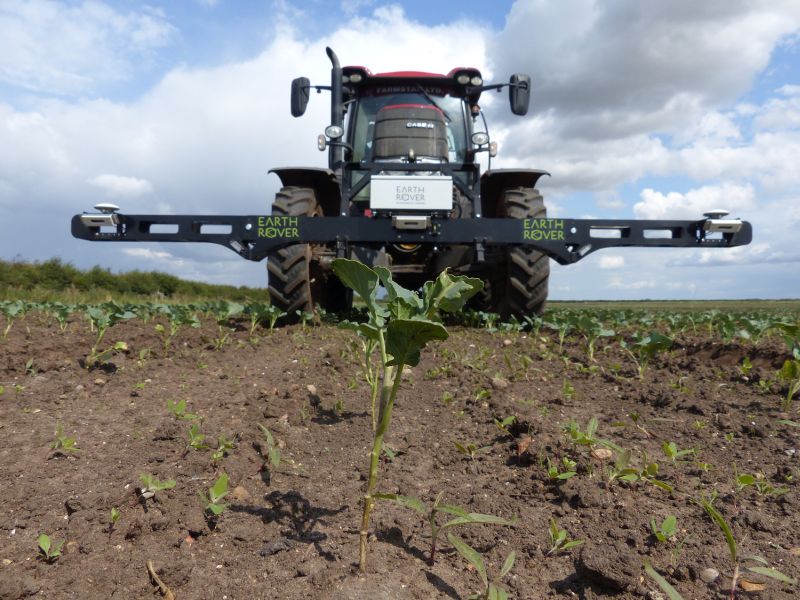
A start-up which aims to use cutting-edge technologies to help farmers improve crop yield has raised £250,000 to launch its first product.
Earth Rover, a ‘crop scouting’ system which predicts the size and timing of harvests, has raised the funding from MEIF Proof of Concept & Early Stage Fund, managed by Mercia.
The system is suitable for crops such as broccoli and lettuce, and is currently being trialled at Polybell Farm in Doncaster, one of the UK’s leading organic vegetable producers.
Earth Rover uses cameras fitted to a tractor to scan the plants and measure their growth as the vehicle passes through the fields on routine farm operations.
The data is then analysed using artificial intelligence (AI) housed in a supercomputer on board the tractor.
Earth Rover, which is based in Shropshire, aims to provide growers with more accurate predictions to help them produce the right number of crops.
It also has an aim to help farmers plan their harvesting labour requirements.
The start-up will initially target growers in the UK and Spain, which has a year-round season.
The company, which has been funded so far through angel investment and by a contract with the European Space Agency, is also working on robotic systems for herbicide-free weeding and harvesting.
The MEIF funding will be paid in two tranches over the next 12 months subject to commercial milestones and will allow the company to fund current trials and bring the product to market.
David Whitewood, CEO of Earth Rover, said technologies such as AI and robotics had revolutionised manufacturing in recent years.
However, he explained agriculture had suffered from a lack of investment - something which 'still relied on traditional techniques'.
"At a time when we face the challenge of feeding a growing population with limited land and labour supplies, it is time for agriculture to undergo the same transformation.
"At Earth Rover we aim to play a leading role in the digitisation of farming to make the industry more productive and sustainable,” Mr Whitewood said.
David Baker, investment manager at Mercia, said the funding would help the company prove its value and launch into the market.
He said: "Vegetable growers routinely overplant crops due to the difficulty in predicting yields and the need to fulfil stringent contracts with supermarkets.
"This pushes up costs and means that much of the crop simply rots in the fields, creating additional carbon emissions.
"We believe Earth Rover’s system could help increase crop yields by 5 per cent and reduce costs by a similar amount."
